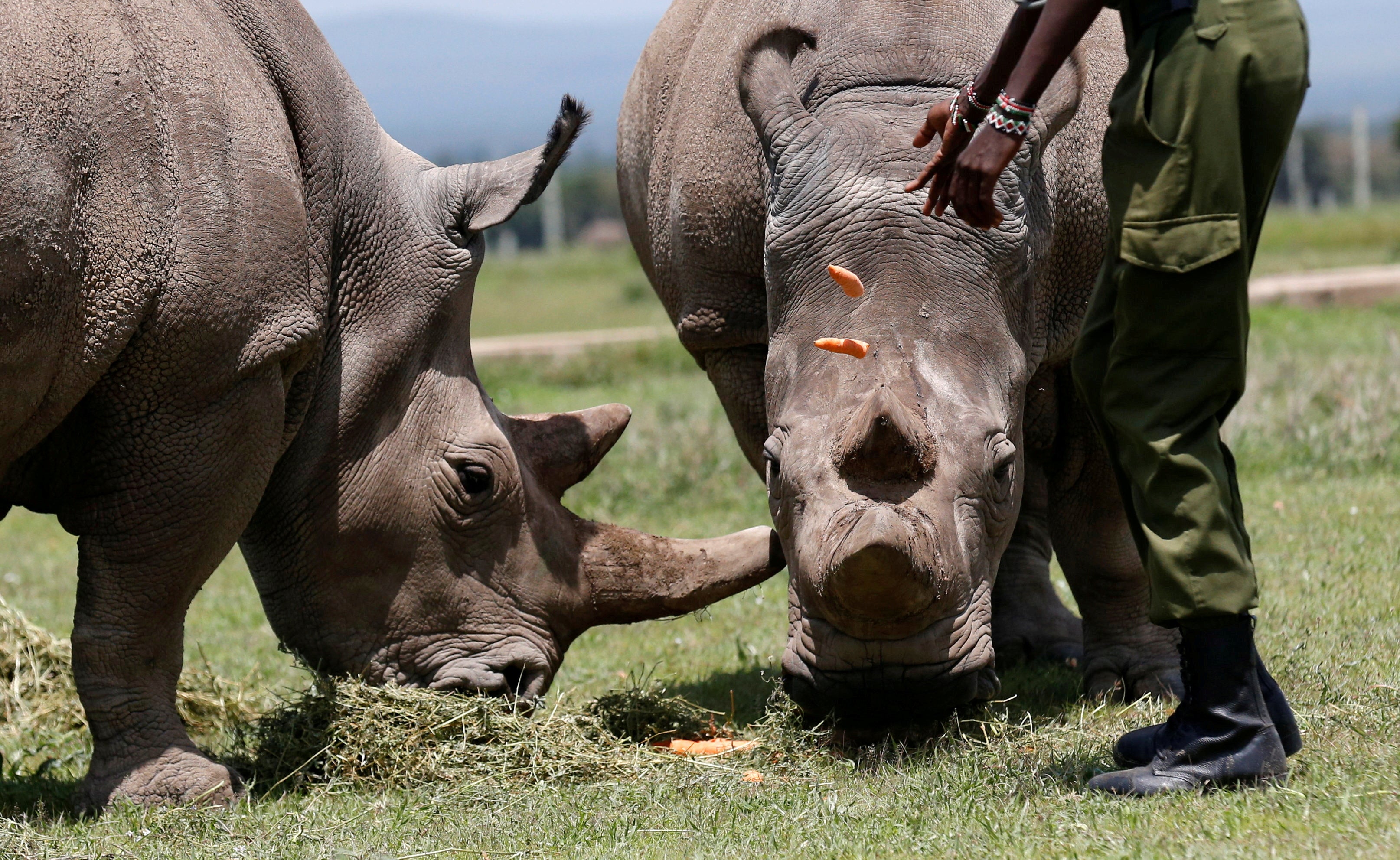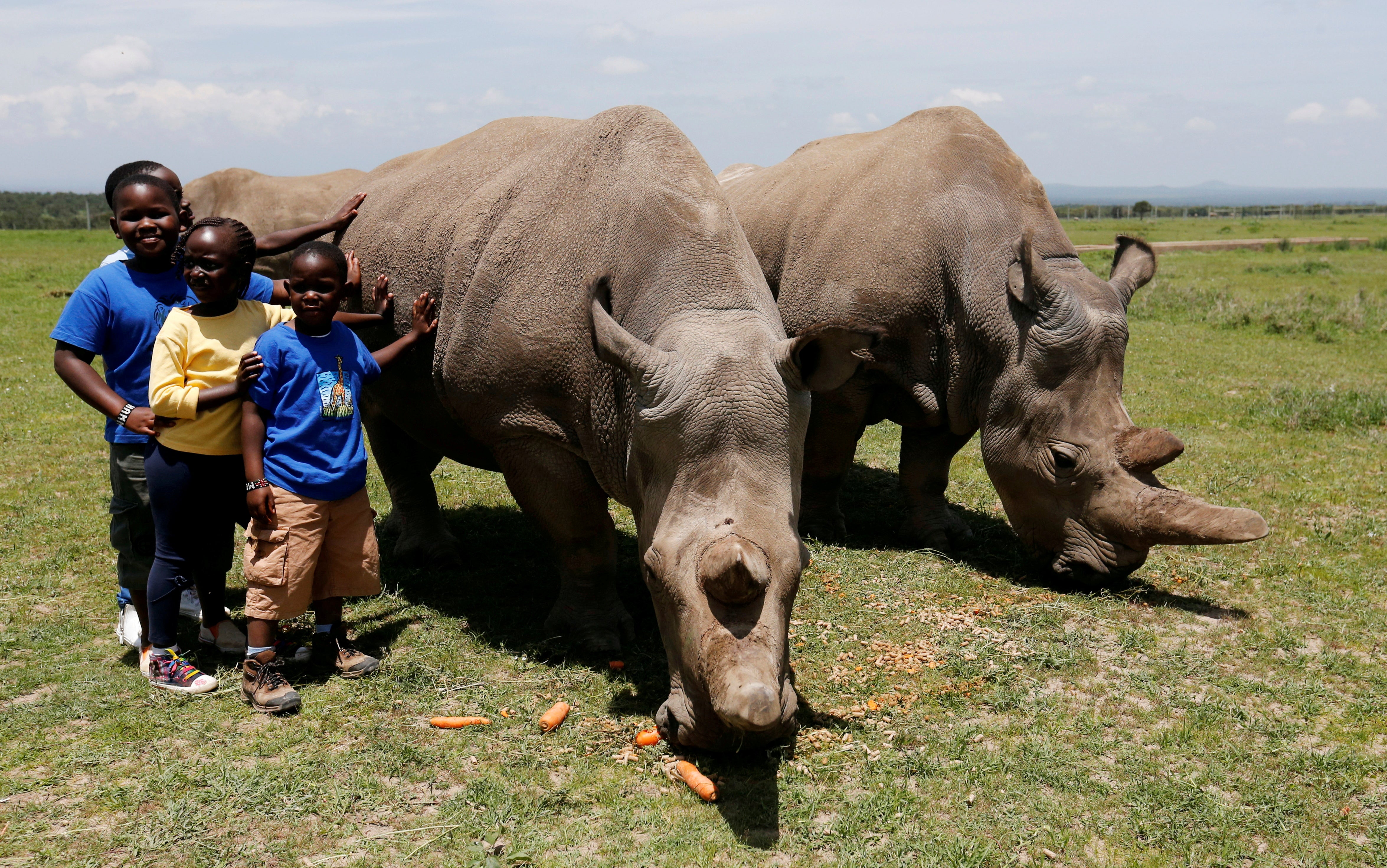One of world’s last northern white rhinos ‘ethically’ retired from breeding programme
This leaves Najin’s daughter Fatu as only donor and lone hope to save northern white rhinos from extinction
Your support helps us to tell the story
From reproductive rights to climate change to Big Tech, The Independent is on the ground when the story is developing. Whether it's investigating the financials of Elon Musk's pro-Trump PAC or producing our latest documentary, 'The A Word', which shines a light on the American women fighting for reproductive rights, we know how important it is to parse out the facts from the messaging.
At such a critical moment in US history, we need reporters on the ground. Your donation allows us to keep sending journalists to speak to both sides of the story.
The Independent is trusted by Americans across the entire political spectrum. And unlike many other quality news outlets, we choose not to lock Americans out of our reporting and analysis with paywalls. We believe quality journalism should be available to everyone, paid for by those who can afford it.
Your support makes all the difference.One of the world’s last two northern white rhinos has been retired on “ethical” grounds from an ambitious breeding programme to save the species from extinction.
Scientists at the conservation consortium BioRescue cited risk factors and safety reasons and said that they would stop harvesting 32-year-old Najin’s eggs. “Weighing up risks and opportunities for the individuals and the entire species rendered this decision without an alternative,” BioRescue said in a statement on Thursday.
This leaves Najin’s daughter Fatu — the other northern white rhino on the planet — as the only donor and lone hope to save the species from extinction.
The last male of the species, Sudan, died in 2019 at the Ol Pejeta Conservancy in Kenya, where Najin and Fatu live under high security. Before his death, Sudan’s sperms were collected and have been used to fertilise eggs.
Since 2019, the international consortium has been collecting eggs from Najin and Fatu for a reproduction programme that has never before tried in rhinos.

The procedure involves a team of international vets extracting the rhino’s eggs in a two-hour, high risk procedure carried out under anaesthesia. The eggs are then sent to an Italian lab for fertilisation, in which sperm from two different deceased males are used.
The techniques have taken years of research and development by scientists. So far, 12 embryos have been created, after three were added in July.
BioRescue scientists said the decision-making process to retire Najin was “exceptionally difficult” as they had to look both from the perspective of conservation and ethical rights of an individual animal.

“Retiring one individual from a conservation programme because of animal welfare considerations is usually not a question to think about for long. But when one individual is 50 per cent of your population, you consider this decision several times because it has significant impact on the prospects of the conservation programme,” Dr Frank Göritz and Dr Stephen Ngulu said.
Najin’s recent ultrasound examinations have revealed multiple small, benign tumours in her cervix and uterus as well as a cyst on her left ovary.
But this is not the end of the line for Najin.
She will now play a valuable role as an ambassador for the conservation of her kind. Her tissue samples will be used for stem cell research in an effort to transfer her social knowledge and behaviour to her offspring.
Neither Najin nor Fatu were capable of carrying a calf to term, therefore surrogate mothers for the embryo will be selected from the southern white rhinos population.
Najin was born in a zoo in the Czech Republic in 1989 but moved to Ol Pejeta Conservancy in Kenya in 2009, where she lives under protection from poachers.

Join our commenting forum
Join thought-provoking conversations, follow other Independent readers and see their replies
Comments